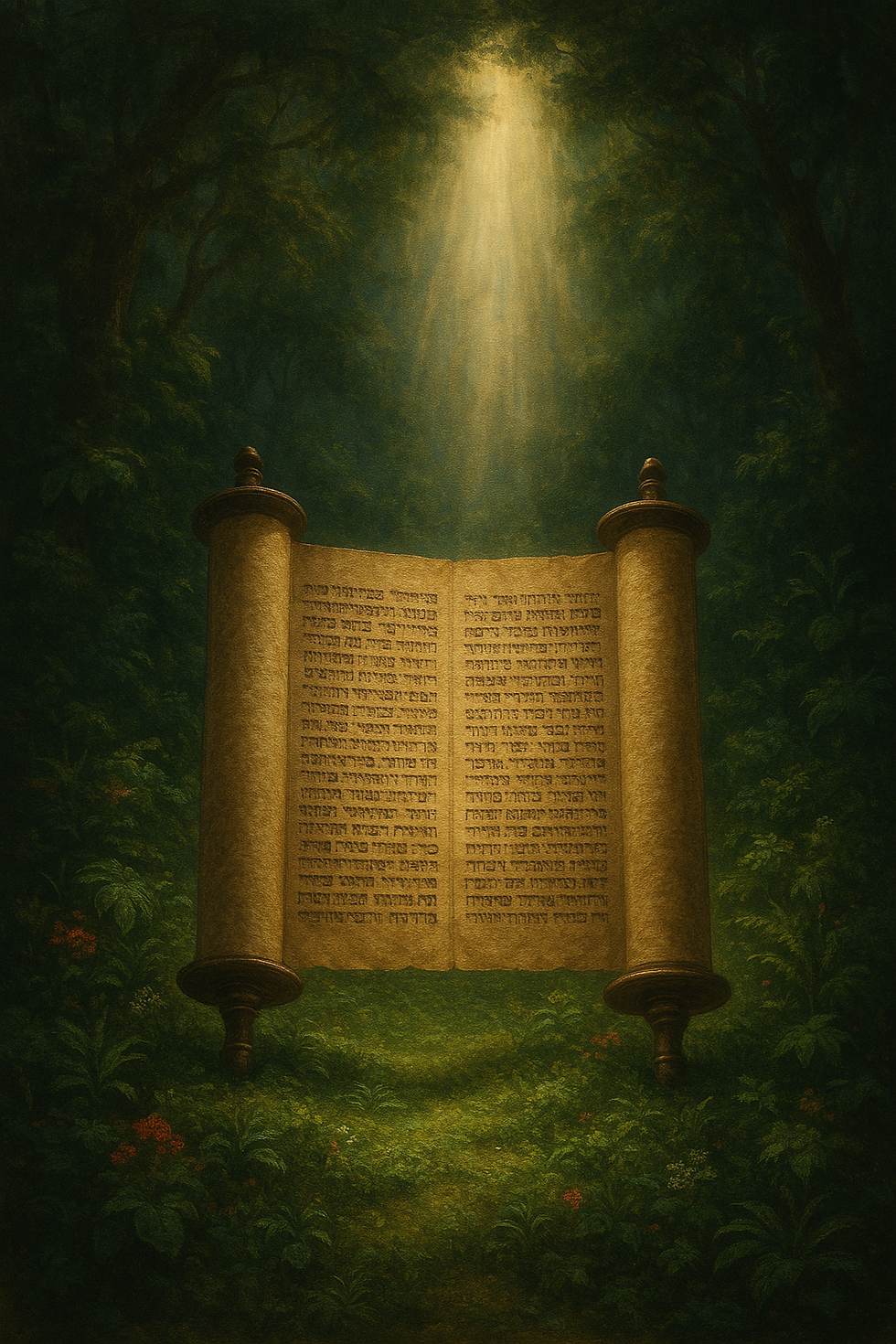Conversational Observations
- Daniel Pulliam

- Oct 10, 2025
- 3 min read
Updated: Oct 11, 2025
As I was reading through and meditating on John 4:1-42, the back and forth of the conversation between Jesus and the Samaritan woman struck me. Yes, there was a social divide between the Jews and the Samaritans. There were at least 3 reasons why this conversation wouldn't typically take place: a gender divide, a cultural divide, and a religious divide. Each could be its own thought experiment of how Jesus handled them, but I'd like to try to share a few things with you by summarizing the conversation flow between Jesus and the woman at the well. May it pique your interest and cause you to think more on this passage and how we can be more like our LORD.
Setting: Jesus asks the woman for a drink, and she immediately questions Him as to why He, a Jew, is speaking to her, a Samaritan. It is interesting that she didn't make a distinction, or see any issue with Jesus, a man, speaking to her, a woman. I can't help but wonder if it is because of her past and present situation with men that she had no issue/shame about that typical barrier. It is present though as Jesus' disciples were shocked that they walked up on Jesus talking with a woman (vs. 27). Jesus salts the oats a bit by letting her know that if she only knew who she was speaking to she would be asking Him for water.
The Woman: The woman identifies with Jesus by referencing their father Jacob. Having already acknowledge their differences (Jew/Samaritan). It's as if she's trying to soften the blow her next comment might land as she insinuates his offer to be either disingenuous or a bit crazy, “you have nothing to draw water with”. The commonality she uses is heritage as she finds it between them referencing “our father Jacob”.
Jesus: When the woman (misunderstanding what Jesus is truly saying) asks for the living water Jesus describes, He pauses that topic for a moment and addresses her sin. Now, if this were me conversing with the woman, I would think it risky. Pointing out someone’s sexual sin (a highly sensitive and potentially volatile topic) when there is already a strong dividing wall that has to be scaled would give me pause; but Jesus went right for it.
The Woman: The narrative reads as if the woman could be engaged in a bit of deflection. She responds to Jesus with religious talk now. After being called out for being a habitual adulteress, she pivots on the fact that He told her something that would have to have been revealed to Him by God as Jesus didn’t know her personally. In doing this she almost rebuilds the old cultural division again, while also risking strengthening it by bringing the religious difference in as well. She uses "fathers" again, but this time she is distancing herself from Jesus “our fathers worshiped on this mountain, but you say in Jerusalem…”.
Jesus: Being all-wise, and full of compassion, Jesus addresses her attempt head on by obliterating the walls she just tried to rebuild. He tells her a time is coming when true worship will not be in Samaria NOR Jerusalem. He does remind her that she doesn’t know what she worships (so he doesn’t confirm her current religious error), and he does remind her that salvation will come from the Jews (so he doesn’t soften truth); but then he creates a third class of worshiper. It’s not Jew nor Samaritan but TRUE WORSHIPERS the Father is seeking, and will have, from all groups (we see even the towns people got it as they later declare Jesus to be the “Savior of the world”.

The Woman: She seems back on board with the conversation now as she tells Jesus, “I know” and perhaps attempting to show she does know something about what she worships as she is aware of the prophecy of the Messiah coming and disclosing all things. Jesus tells her He is The Messiah and it’s like her eyes are suddenly opened. She now realizes what Jesus was doing when he was confronting her with details of her sordid life. She leaves her waterpot, which I find comically clarifying and beautiful, as she now is like her new-found Messiah in that she has nothing to draw water with as she heads back town to tell people about the Living Water that she just got without a water pot. She is now an evangelist; bringing people directly to the Eternal Fountain from which they can drink freely themselves.





Comments